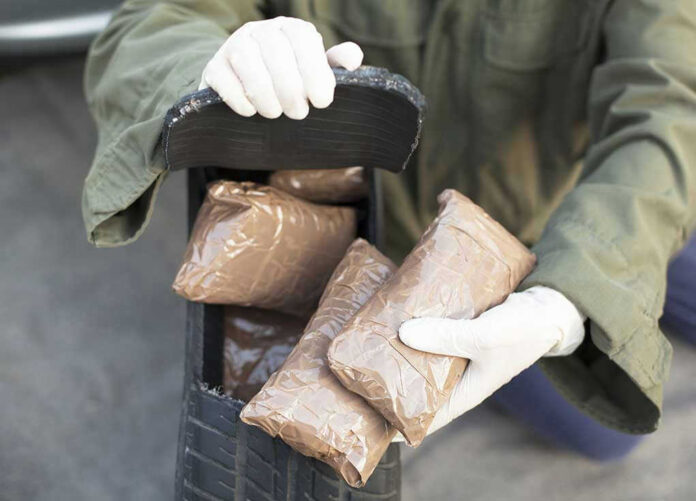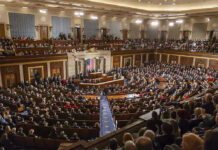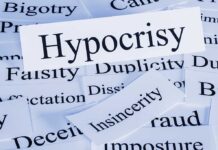
Direct admissions from a senior cartel leader confirm that President Trump’s aggressive crackdown has thrown Mexico’s most notorious drug cartels into disarray, forcing them into desperate measures and raising the stakes at the border.
Story Snapshot
- Sinaloa Cartel leader reveals Trump’s new policies have made cartel operations riskier and more expensive.
- Trump administration’s designation of cartels as terrorist organizations triggered major law enforcement raids and asset seizures.
- Cartels are raising prices for migrant smuggling and shifting tactics to avoid U.S. enforcement.
- Law enforcement and multiple outlets corroborate that Trump’s crackdown is having a real, disruptive impact.
Cartel Admissions Reveal the Real Impact of Trump’s Crackdown
In a rare moment of candor, a senior leader of the Sinaloa Cartel admitted to several major news outlets that President Trump’s renewed war on the cartels has directly disrupted their operations. The cartel insider described how heightened U.S. enforcement at the border has increased both the risks and costs of smuggling drugs and people into the United States. Unlike the empty talk of previous years, these policies have forced cartels to adapt, pushing them to raise prices and rethink their trafficking strategies. This direct confirmation from within the cartel itself shatters the narrative that tough U.S. policies are merely symbolic or ineffective.
Trump’s decisive action began in January 2025 with an executive order designating major Mexican cartels as foreign terrorist organizations. This allowed the Pentagon to explore military options against cartel strongholds while empowering law enforcement agencies to intensify raids and asset seizures. Early in 2025, U.S. agencies seized millions in cartel-linked assets—including over $10 million in cryptocurrency—along with large quantities of fentanyl at the border. The result has been a palpable sense of fear and disruption among cartel leaders, as reported by informants and corroborated by independent news organizations.
Operational Upheaval: Cartels Forced to Adapt and Pay the Price
The Sinaloa Cartel, long considered the most powerful and resilient of Mexico’s drug syndicates, has had to confront a new reality. The Trump administration’s pressure campaign has driven up the cost of doing business for these criminals. Cartels now charge migrants higher fees to offset the increased risk of detection and arrest. Traffickers who once moved fentanyl with impunity now face aggressive U.S. enforcement, leading some to abandon the trade altogether. The internal divisions within the cartel, particularly between rival factions, have only intensified as profits dip and operational risks rise. These changes mark a sharp departure from the complacency seen under less assertive U.S. policy regimes.
Law enforcement experts and policy analysts widely agree that this shift in strategy has real consequences. While some caution that cartels may adapt or fragment in response, the immediate effect is clear: the cost and danger of trafficking are up, while the ability of cartels to operate freely is down. Migrants themselves are feeling the squeeze, facing both higher smuggling prices and increased danger as routes become riskier and more controlled. Border communities in both the U.S. and Mexico are caught in the crossfire, experiencing temporary reductions in trafficking but also bracing for potential retaliatory violence from desperate criminal organizations.
Constitutional Values and the Stakes for American Security
For many Americans, the Trump administration’s approach signals a long-overdue return to upholding the rule of law and defending the border. By treating cartels as the terrorist threats they are, Trump’s policies stand in stark contrast to the leniency and bureaucratic gridlock of past administrations. This crackdown directly addresses the conservative priorities of national sovereignty, public safety, and the fight against globalist agendas that have too often put American families at risk. However, the road ahead remains complex. Some experts warn that cartels may shift tactics or seek out new alliances, and that U.S.-Mexico relations could be tested by this more muscular approach. Still, the admissions from cartel insiders offer rare validation: strong enforcement deters crime and disrupts criminal enterprises.
Read "Cartel leader admits that President Trump’s cartel crackdown has made their lives difficult" on SmartNews: https://t.co/gUgvb2OWti #SmartNews
— Rhonda Kisting (@rmkisting) October 1, 2025
Despite some debate over the long-term effects, one fact is beyond dispute—Trump’s crackdown has forced even the most entrenched criminal organizations to rethink their operations. The direct testimony of cartel leaders, corroborated by law enforcement and independent media, is a clear testament to what resolute American leadership can achieve. As the story continues to unfold, conservatives across the country can take heart: a return to strength and common-sense security is making a real difference where it matters most.
Sources:
Cartel leader admits President Trump’s cartel crackdown has made their lives difficult — Fox News
Sinaloa Cartel Hitman Admits Fear Over Trump’s Crackdown On Fentanyl — Latin Times
Sinaloa Cartel leader speaks out on Trump’s crackdown — Fox News Video
Mexican cartel fears Trump’s immigration policy — AZ Central
U.S. drug raids net $10 million in cartel-linked assets — AOL News















